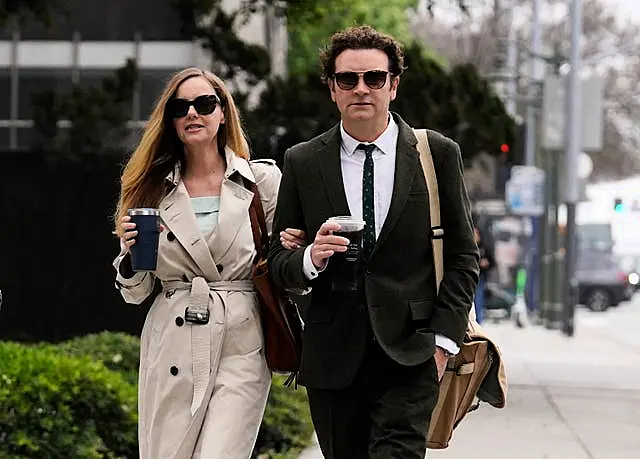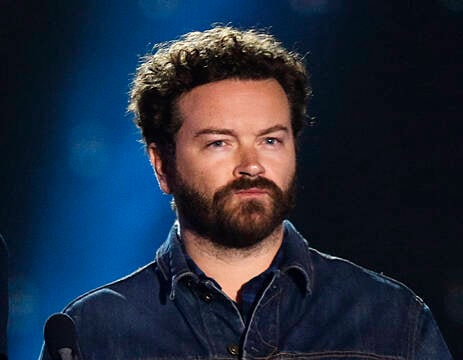Danny Masterson drugged women’s drinks so he could rape them, then relied on his prominence in the Church of Scientology to avoid consequences for years, a prosecutor has told jurors in closing arguments at the actor’s trial.
“The defendant drugs his victims to gain control. He does this to take away his victims’ ability to consent,” deputy district attorney Ariel Anson told the jury of seven men and five women.
“You don’t want to have sex? You don’t have a choice. The defendant makes that choice for these victims. And he does it over and over and over again.”
The 47-year-old former star of That ’70s Show is on trial for rape for a second time after the first ended in a mistrial in December, with a jury deadlocked on all counts.

Masterson has pleaded not guilty to raping three women at his home between 2001 and 2003. His lawyer, Philip Cohen, who briefly began his own closing and will continue in the afternoon, told jurors that inconsistencies in the women’s stories are important to consider.
“(Ms Anson) did a very nice job of ignoring many of them,” Mr Cohen said. “What she views as little inconsistencies are at the heart of trying to determine, ‘Is somebody, reliable, credible, believable enough for a criminal conviction?’”
Ms Anson took aim at the Church of Scientology, of which Masterson is a member and all three women are former members, throughout her argument, emphasising that church authorities kept the women from accepting what had happened to them and from reporting it to police for years.
“The church taught his victims, ‘Rape isn’t rape, you caused this, and above all, you are never allowed to go to law enforcement’,” she said. “In Scientology, the defendant is a celebrity and he is untouchable.”
The church has denied having any policy discouraging members from going to law enforcement.
Actor Leah Remini, a former member of the church who has become one of its most prominent public opponents, sat in the courtroom, her arm around one of the accusers, who gave evidence during both trials that Masterson raped her in 2003.

Ms Anson guided jurors through the evidence of all three women. One is a former girlfriend who said Masterson raped her five years into their relationship in 2001. The two others are women he knew through social circles surrounding the church.
All told the court they became unusually groggy and had gaps in consciousness and memory after consuming drinks Masterson gave them. Judge Charlaine Olmedo allowed the prosecution during the second trial to directly say he drugged the women, after only allowing descriptions of their states at the first.
There is no physical evidence of any drugging. The investigation that led to Masterson’s arrest did not begin for about 15 years after the women say they were raped.
Ms Anson told jurors the women’s accounts and the evidence of a police toxicology expert who described symptoms should be enough.
“We ask that you hold the defendant accountable,” she said, “that you find him guilty.”
Fewer than half of jurors voted to convict Masterson on any count after the first trial.
Lawyers for both sides rested their cases on Friday, three weeks into the second trial. Masterson’s lawyers declined to call any witnesses.
His attorney emphasised on Tuesday that jurors must find him guilty if it beyond a reasonable doubt, saying that even if they believe it is likely he is guilty, they must acquit.
“If you say, ‘I think he is probably guilty’, you know what that leads to?” Mr Cohen said. “Not guilty.”







